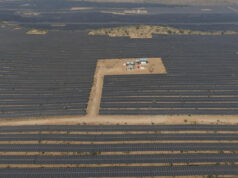Shimla – In a significant development for India’s renewable energy sector, Satluj Jal Vidyut Nigam Limited (SJVN) has secured a Letter of Intent (LoI) to supply 200 MW of solar power to Uttarakhand Power Corporation Limited (UPCL). This agreement is a crucial step in meeting the growing demand for clean and sustainable energy in the region.
The LoI, recently announced by SJVN’s Chairman & Managing Director, Nand Lal Sharma, underscores UPCL’s intention to procure 200 MW of solar power at a competitive tariff of Rs 2.57 per unit. The source of this renewable energy will be SJVN’s ambitious 1000 MW Bikaner Solar Project, situated in Rajasthan.
This large-scale solar project is being developed by SJVN Green Energy Limited (SGEL), a wholly-owned subsidiary of SJVN, as part of the Central Public Sector Undertaking (CPSU) Scheme, with viability gap funding support from the Government of India. The project’s significance extends beyond its size, as it aligns with the government’s vision of achieving energy security and reducing carbon emissions.
The electricity generated from the Bikaner Solar Project is earmarked for use by government entities, either directly or through Distribution Companies (DISCOMS). This strategic move emphasizes the project’s role in supporting India’s ambitious clean energy goals, contributing to a more sustainable and environmentally friendly energy landscape.
The allocation of solar power from the project will be formalized through a Power Purchase Agreement (PPA) to be signed between SGEL and UPCL in the near future. This PPA will define the terms and conditions of the power supply, ensuring a smooth and effective integration of renewable energy into Uttarakhand’s energy mix.
This announcement comes on the heels of a significant milestone earlier this year when, on January 3, 2023, the President of India, Droupadi Murmu, laid the foundation stone for the 1000 MW Bikaner Solar Project. The project, with an estimated investment of Rs. 5491 crores, is on track for commissioning by June 2024.
Once operational, the Bikaner Solar Project is expected to generate 2455 million units of clean energy in its first year of operation and approximately 56838 million units cumulatively over a span of 25 years. Furthermore, it will contribute to reducing carbon emissions by an estimated 27,85,077 tonnes, thus making a substantial contribution to India’s efforts to combat climate change and transition towards a sustainable energy future.














